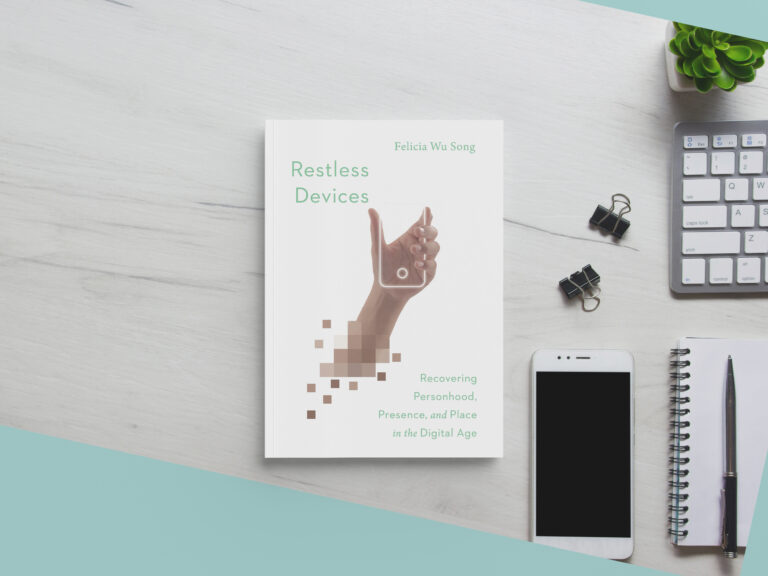What does personhood have to do with devices?
When our digital devices become integral to deeply habituated routines, they begin to have a formative effect on what we perceive to be valuable and important. For example, when I simply become used to checking my work email upon my every waking and between activities throughout the day, that routine is deepening in me the priority of my workplace responsibilities over and above my other commitments to interpersonal relationships, faith, community, and myself.
What does it mean for our relationships to be “industrialized”?
Social media platforms industrialize our relationships when they measure our worth by enumerating our followers and likes, drive us to curate performances of our identity in ways that are algorithmically predictable, and ultimately train us to objectify our relationships with each other through expected reciprocity of attention and approval. By industrializing our relationships, social media companies monetize our very human desires for belonging and communion and distort our lived experiences of who we are to each other.
Has anything changed since your book came out that you’d want to address now?
It seems impossible not to address the latest roll out of artificial intelligence. What concerns me is the lack of curiosity and inquiry into what kinds of data these AI systems are actually trained on, and the degree to which such data are value-laden, biased, incomplete representations of social reality. Consider how facial recognition technologies remain troubled by serious inaccuracies and mistakes when attempting to “recognize” BIPOC faces — particularly that of Black women — precisely because they were primarily trained with white male faces. Subsequent premature uses of these technologies in law enforcement or security contexts reveal both our impulse to project neutrality and objectivity to these digital technologies and our lack of care for our fellow human beings who will suffer the consequences.
